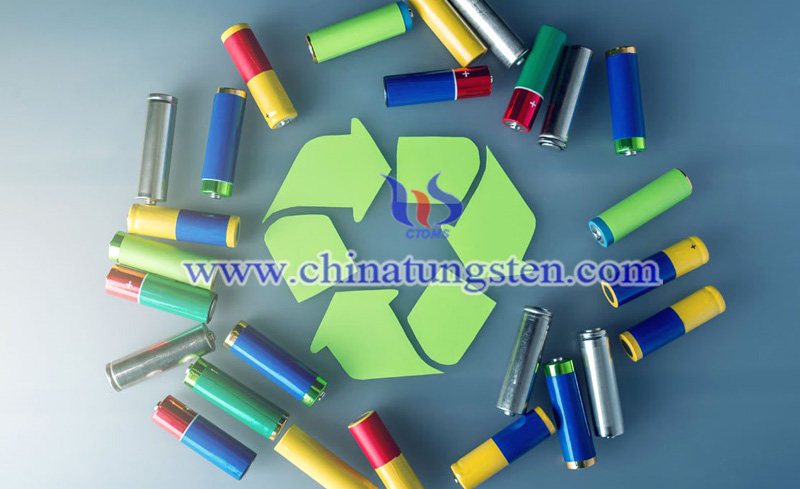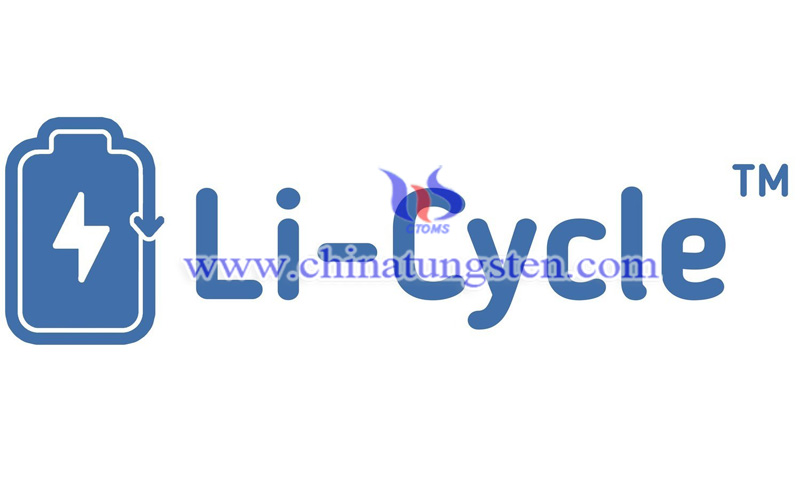Canada's Li-Cycle Announces 100% Lithium Battery Recovery Rate
- Details
- Category: Tungsten's News
- Published on Friday, 10 January 2020 21:27
Recovering valuable cobalt lithium metal from used lithium battery materials has become a vital way to reduce battery costs and ensure the supply of raw materials. Recently, Canada's Li-Cycle Corp has reported its first shipment of commercially recycled battery material from its facility in Ontario. The company says it is one of the few companies globally capable of recovering critical battery materials from lithium-ion batteries in a sustainable and safe manner.
Li-Cycle was founded in 2016 as a clean technology company with a mission to solve the end-of-life lithium battery issue and meet the rapidly growing demand for key battery materials.

It is understood that Canada's Li-Cycle has developed a unique technology that enables 80-100% recovery of all materials found in lithium-ion batteries using a two-step mechanical and hydrometallurgical or wet chemistry process. The company's process technology is uniquely capable of recycling all variants of cathode and anode chemistries within the lithium-ion spectrum, without the need for sorting into specific chemistries.
Specifically, the company's two-stage process first uses mechanical methods to reduce the size of the battery and crush the battery to remove plastic and metal. The second step is to use wet metallurgy and wet chemical processes for battery recovery, one by one to remove valuable components, such as lithium carbonate, lithium, cobalt, copper, aluminum, graphite, iron, iron phosphate, and so on.
The company's core business model is to build, own, and operate lithium battery recycling plants tailored to regional needs. Through the integrated development of Li-Cycle Technology™, it has been identified that the best and fit-for-market commercialization strategy is one of decentralization - i.e. with tailored size-reduction plants that are close to the highest volume points of consolidation of lithium-ion batteries, and centralized hydrometallurgical plants that are decoupled from the size reduction facilities.

The core benefit of this hub-and-spoke approach is the generation of a non-hazardous product close to the point of consolidation, minimizing transportation liability, and cost to the greatest extent. This decentralized strategy is reflected in the commercial rollout plan for the company’s first commercial plant, with a planned resource recovery capacity of 5,000 tonnes of spent lithium-ion batteries per year.
In fact, with the progress of electrification, the cooperation between OEMs, battery factories and materials companies in battery recycling are further deepening. International car companies including Audi, BMW, Volkswagen, Tesla, Toyota, etc. are currently planning to recycle used batteries as an important source of battery materials.
At the same time, like Canada's Li-Cycle, Samsung SDI, LG Chemical, SKI, and other international battery giants are also cooperating with international cathode material companies such as Umicore and BASF to arrange waste power battery recycling, add new raw material supply channels for them, and reduce raw material procurement costs, recycling lithium battery materials will be the promising way.
- Tungsten Manufacturer & Supplier, Chinatungsten Online: www.chinatungsten.com
- Tungsten News & Prices of China Tungsten Industry Association: www.ctia.com.cn
- Molybdenum News & Price: news.molybdenum.com.cn
- Tel.: 86 592 5129696; Fax: 86 592 5129797; Email: sales@chinatungsten.com



 sales@chinatungsten.com
sales@chinatungsten.com